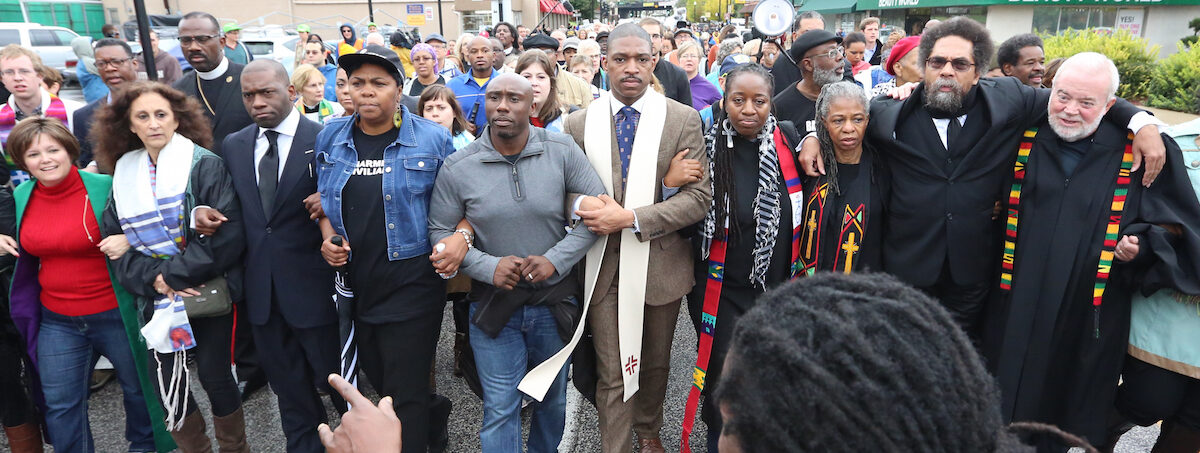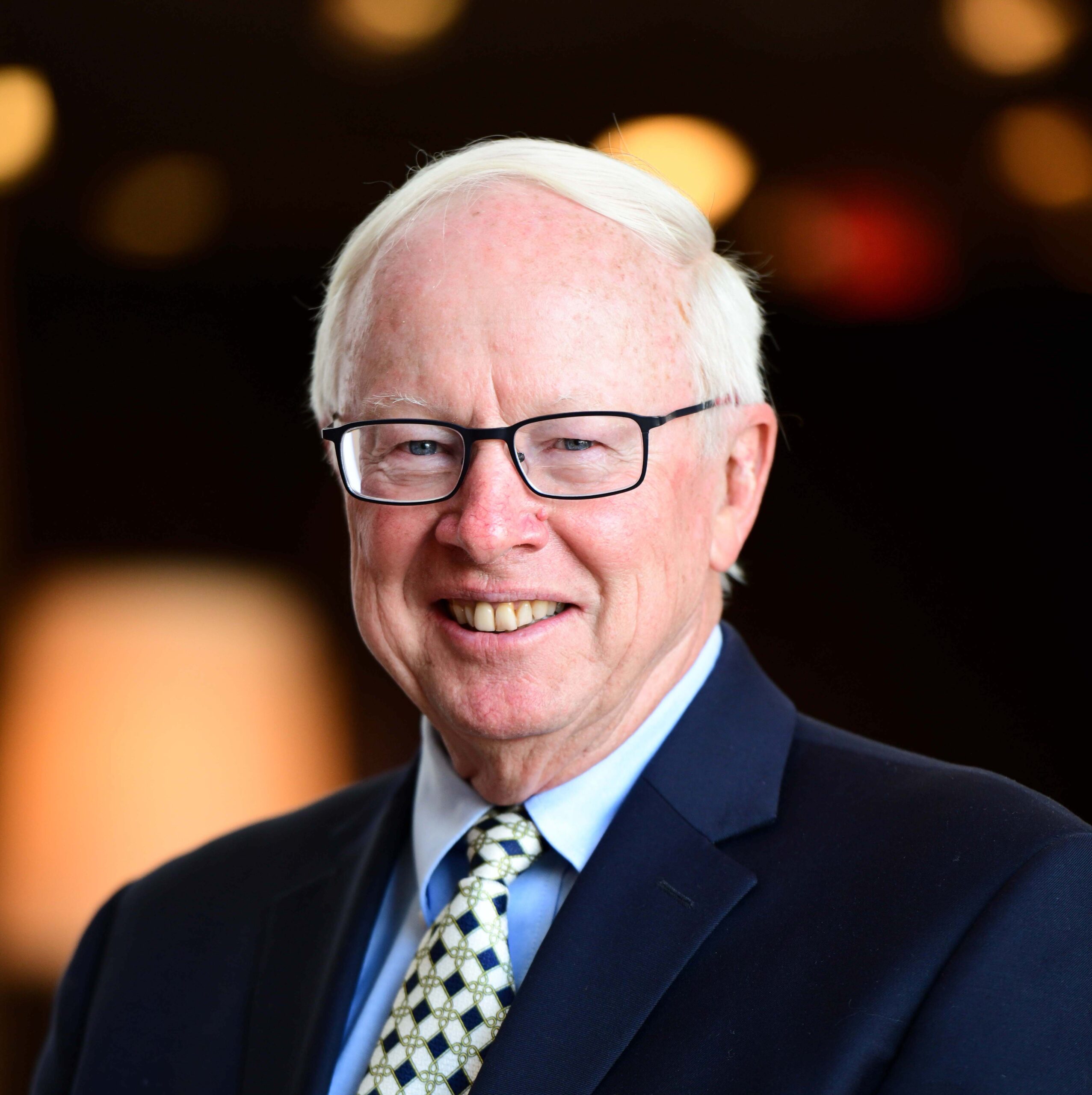Protests and uprisings are one way that people of faith respond to acts of injustice. Gandhi, Martin Luther King and Desmond Tutu exemplify religious leadership that was nonviolent. In Los Angeles, Rev. Cecil (Chip) Murray played a similar role during the 1992 civil unrest, channeling outrage at the actions of the police and courts into constructive engagement with the community. CRCC grew out of a scholarly attempt to understand the faith-based response to the L.A. riots.
Since then, Los Angeles has witnessed large-scale demonstrations related to immigrant rights, protests against war that involved civil disobedience by clergy and faith leaders, and collaboration between people of faith and labor unions supporting income equality. Through song, symbols and ritual actions, many political protests draw on the resources of religion to mobilize people.
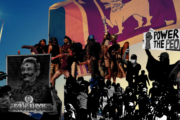 CRCC in the NewsRNS: Gajaweera on Buddhism and Sri Lanka’s Recent Protest MovementProtests that led to Sri Lanka’s President Gotabaya Rajapaksa resignation have raised questions about the role of Buddhism in the country’s politics. Religion News Service interviewed CRCC’s Nalika Gajaweera about the Buddhist …Topics: Buddhism, Protest Movements, Religious Leadership
CRCC in the NewsRNS: Gajaweera on Buddhism and Sri Lanka’s Recent Protest MovementProtests that led to Sri Lanka’s President Gotabaya Rajapaksa resignation have raised questions about the role of Buddhism in the country’s politics. Religion News Service interviewed CRCC’s Nalika Gajaweera about the Buddhist …Topics: Buddhism, Protest Movements, Religious Leadership ArticleSri Lanka’s Dual Crisis: Ethnic Conflict & the Debt EconomyThis article was originally published by Jamhoor. “Except for the home crowd cheering for our national team at an international cricket match, it was the first time I was seeing Sri Lankans …Topics: Buddhism, Nalika Gajaweera, Protest Movements
ArticleSri Lanka’s Dual Crisis: Ethnic Conflict & the Debt EconomyThis article was originally published by Jamhoor. “Except for the home crowd cheering for our national team at an international cricket match, it was the first time I was seeing Sri Lankans …Topics: Buddhism, Nalika Gajaweera, Protest Movements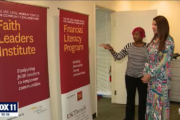 CRCC in the NewsMedia on the 30 Years after LA’s 1992 Civil UnrestAs the USC Center for Religion and Civic Culture reflected on the 1992 Civil Unrest, the words and efforts of the Rev. Dr. Cecil Murray following the unrest continued to be highlighted …Topics: Black Church, Protest Movements, Racial Justice, Southern California
CRCC in the NewsMedia on the 30 Years after LA’s 1992 Civil UnrestAs the USC Center for Religion and Civic Culture reflected on the 1992 Civil Unrest, the words and efforts of the Rev. Dr. Cecil Murray following the unrest continued to be highlighted …Topics: Black Church, Protest Movements, Racial Justice, Southern California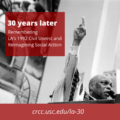 ReportThirty Years Later: Remembering LA’s 1992 Civil Unrest and Reimagining Social ActionLike the tectonic fault lines that can suddenly release pent-up geological pressures, shaking the literal bedrock of Southern California, the cultural fault lines between groups with unequal political and economic power periodically …Topics: Black Church, Christianity, Interfaith/Multifaith Movements, Protest Movements, Racial Justice, Religious Leadership, Southern California, Violence
ReportThirty Years Later: Remembering LA’s 1992 Civil Unrest and Reimagining Social ActionLike the tectonic fault lines that can suddenly release pent-up geological pressures, shaking the literal bedrock of Southern California, the cultural fault lines between groups with unequal political and economic power periodically …Topics: Black Church, Christianity, Interfaith/Multifaith Movements, Protest Movements, Racial Justice, Religious Leadership, Southern California, Violence- VideoCommunity Storytelling for Policy Change: 30th anniversary of LA Civil Unrest
 CommentaryPandemic Year 3 Predictions: Adjusting to New “Normals” in 2022Since 2016, CRCC has shared the trends in religion and society that we see shaping the coming year. What started as light-hearted predictions has grown more ominous over the years. Anybody surprised …Topics: Black Church, Christianity, Evangelicalism, Media and Technology, Politics, Protest Movements, Religious Leadership, Religious Literacy and Pluralism, trends
CommentaryPandemic Year 3 Predictions: Adjusting to New “Normals” in 2022Since 2016, CRCC has shared the trends in religion and society that we see shaping the coming year. What started as light-hearted predictions has grown more ominous over the years. Anybody surprised …Topics: Black Church, Christianity, Evangelicalism, Media and Technology, Politics, Protest Movements, Religious Leadership, Religious Literacy and Pluralism, trends CRCC in the NewsRev. Najuma Smith-Pollard on Chauvin TrialReligious leaders anticipated and responded to the verdict in the trial of Derek Chauvin in the killing of George Floyd in Minnesota. Rev. Najuma Smith-Pollard, program manager for the USC Cecil Murray Center …Topics: Protest Movements, Racial Justice
CRCC in the NewsRev. Najuma Smith-Pollard on Chauvin TrialReligious leaders anticipated and responded to the verdict in the trial of Derek Chauvin in the killing of George Floyd in Minnesota. Rev. Najuma Smith-Pollard, program manager for the USC Cecil Murray Center …Topics: Protest Movements, Racial Justice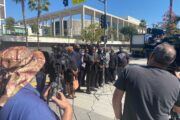 CommentaryIn Wake of Chauvin Trial, What Can Faith Leaders Learn From the Rodney King LA Civil Unrest?This article was originally published in Religion News Service and The Washington Post. As the U.S. reacts to the guilty verdict in the trial of Derek Chauvin, many are wary of violence …Topics: CMCCE, Najuma Smith, Protest Movements, Racial Justice, Religious Leadership, Southern California
CommentaryIn Wake of Chauvin Trial, What Can Faith Leaders Learn From the Rodney King LA Civil Unrest?This article was originally published in Religion News Service and The Washington Post. As the U.S. reacts to the guilty verdict in the trial of Derek Chauvin, many are wary of violence …Topics: CMCCE, Najuma Smith, Protest Movements, Racial Justice, Religious Leadership, Southern California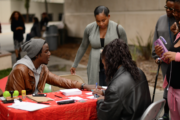 CRCC in the NewsSojourners Magazine: Can Churches Earn the Trust of Young Racial Justice Activists?Religious adherence may be on the decline among young people, but activists in the racial justice movement remain animated by spiritual practices, Sojourners magazine reported. The article quotes CRCC’s Hebah Farrag and …Topics: Engaged Spirituality, Protest Movements, Racial Justice
CRCC in the NewsSojourners Magazine: Can Churches Earn the Trust of Young Racial Justice Activists?Religious adherence may be on the decline among young people, but activists in the racial justice movement remain animated by spiritual practices, Sojourners magazine reported. The article quotes CRCC’s Hebah Farrag and …Topics: Engaged Spirituality, Protest Movements, Racial Justice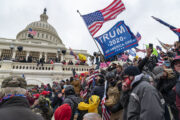 CommentaryWhite Christian nationalism and the next wave of political violenceThis article was originally published by The Hill. There was a brief period when Republicans appeared to reject Trumpism. Sen. Lindsey Graham (R-S.C.) condemned the insurrectionists as “terrorists, not patriots,” Senate Minority Leader Mitch McConnell (R-Ky.) said the seditionists were …Topics: Brie Loskota, Christianity, Evangelicalism, Politics, Protest Movements, Racial Justice, Violence
CommentaryWhite Christian nationalism and the next wave of political violenceThis article was originally published by The Hill. There was a brief period when Republicans appeared to reject Trumpism. Sen. Lindsey Graham (R-S.C.) condemned the insurrectionists as “terrorists, not patriots,” Senate Minority Leader Mitch McConnell (R-Ky.) said the seditionists were …Topics: Brie Loskota, Christianity, Evangelicalism, Politics, Protest Movements, Racial Justice, Violence CommentaryPredictions 2021: An Uphill StruggleAs we do around this time each new year, we at the USC Center for Religion and Civic Culture (CRCC) are going to make some predictions for 2021. Even though the world …Topics: Faith-State Relations, Politics, Protest Movements, Racial Justice, trends
CommentaryPredictions 2021: An Uphill StruggleAs we do around this time each new year, we at the USC Center for Religion and Civic Culture (CRCC) are going to make some predictions for 2021. Even though the world …Topics: Faith-State Relations, Politics, Protest Movements, Racial Justice, trends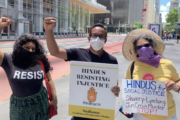 ArticleSunita Viswanath: A New Kind of Allyship with Black Lives MatterThis article was originally published in The Juggernaut, with the support of CRCC’s global project on engaged spirituality. When restaurant owner Ruhel Islam said “let my building burn” last month in Minneapolis, he instantly …Topics: Engaged Spirituality, Politics, Protest Movements, Racial Justice, Spiritual Exemplars
ArticleSunita Viswanath: A New Kind of Allyship with Black Lives MatterThis article was originally published in The Juggernaut, with the support of CRCC’s global project on engaged spirituality. When restaurant owner Ruhel Islam said “let my building burn” last month in Minneapolis, he instantly …Topics: Engaged Spirituality, Politics, Protest Movements, Racial Justice, Spiritual Exemplars
“An unjust law is itself a species of violence. Arrest for its breach is more so. Now the law of nonviolence says that violence should be resisted not by counter-violence but by nonviolence. This I do by breaking the law and by peacefully submitting to arrest and imprisonment.”
CRCC Experts
To schedule an interview with one of our experts, please contact CRCC:
crcc@usc.edu or 213-743-1611
